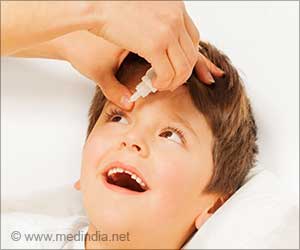According to a new study exposure to pollutants, like polychlorinated biphenyls (PCB), which are chemicals that are widely used in industry could have a direct effect in reducing the immune response of the child to the vaccinations.
It was explained that Grandjean and colleagues from the University of Southern Denmark, Odense, had examined vaccination responses in two birth cohorts from the Faroe Islands where the average exposure to are of wide variables and are up to 10-fold higher than average levels in Northern Europe. They also explained that this was so as the traditional diet there usually include whale blubber that are contaminated with PCBs.Dr. Philippe Grandjean said, “Pollutants, such as PCBs, may be partially responsible that vaccinations don't 'take' in some children. I believe that this is yet another reason to protect children, and pregnant women against chemical pollutants.”
The researchers explained that they measured the exposure to PCB by analysing the mother's blood when she was pregnant and her early or ‘transition’ milk, and by analysing the blood samples of children. They stated that among 119 children who received the standard diphtheria and tetanus vaccines and those who were examined at 18 months, there was a significant negative connection between the prenatal exposure to PCB and antibody concentrations, especially for diphtheria.
They explained to have found that the higher the level of PCB exposure, the lower the antibody protection. They also explained that they had also seen much the same results in around 129, 7 yr olds who were exposed parentally or postnatally to PCBs. Explaining that even though they did find that mast of the children had antibody levels that were sufficient to protect them against diphtheria and tetanus, the researchers found that 21% of the 7-year-olds had the concentration levels of diphtheria toxoid antibody lower than the levels that could be needed for long-term protection.
The researchers explained in their report that the antibody response to diphtheria toxoid at 18 months fell by 24.4% for each doubling of the combined prenatal PCB exposure variable, and they also found that the postnatal exposure had similar significant effects.
Grandjean had also explained that the National Institute for Environmental Health Sciences and US EPA, have extended their full support and cooperation to the investigators to examine a larger group of around 500, PCB-exposed children before and after the booster vaccination at ages of 5 and 7 years respectively.
Advertisement
Advertisement
VIK







